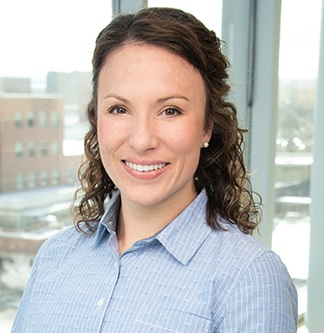Healthcare professionals will be crucial to advocating for and implementing healthcare systems that are climate resilient, says Caitlin Rublee
 Tree rings are used by climate scientists to evaluate historical environmental conditions. During lush seasons, tree rings are wide; during times of acute stress, tree rings narrow, and growth is compromised. If the planet was a tree right now, we would be living in a thin dark line.
Tree rings are used by climate scientists to evaluate historical environmental conditions. During lush seasons, tree rings are wide; during times of acute stress, tree rings narrow, and growth is compromised. If the planet was a tree right now, we would be living in a thin dark line.
The coronavirus disease (covid-19) has prematurely killed more than 929 000 people globally in the space of half a year and has placed significant strain on healthcare systems. Yet the stressors are just beginning. Over the coming months to years, healthcare delivery and access to care will be further challenged by extreme weather events from climate change. Wildfires will burn buildings and block essential roads. Extreme heat will increase healthcare facilities’ energy demands for cooling. Freshwater and coastal flooding will saturate patient care areas and parking lots; tropical storms will cause power outages. Hospitals will be evacuated preemptively or after impact when damages halt operations, leaving no house for medicine to operate under.
Covid-19 adds fuel to the fire. Disruptions to healthcare facilities and evacuations will be compounded by critically ill patients who require mechanical ventilation and the added inefficiencies (and necessity) of pandemic precautions. Communication barriers, delays in decisions, transportation disruptions, supply chain shortages, and staff absenteeism from extreme weather events could prove fatal, particularly with the existing strain on facilities from covid-19. The addition of climate related displacement, traumatic injuries, infectious disease burdens, and behavioral health disorders will only accentuate the weaknesses of an ill prepared system.
Several solutions are available to protect communities—both in responding to disasters as well as making sound investments in healthcare delivery. First, health professionals, public health officials, healthcare executives, and policy makers should prioritize creating climate resilient health systems directed by climate science risk assessment.
Identifying threats and vulnerabilities is the first step to change. Toolkits already exist that guide assessments and planning, including the US Department of Health and Human Services’ Sustainable and Climate Resilient Health Care Facilities Initiative (SCRHCFI), the Pan American Health Organization’s Smart Hospitals Toolkit, Canada’s Health Care Facility Climate Change Resiliency Toolkit, and the World Health Organization (WHO) and World Bank Group’s Climate Change and Health Diagnostic. An established WHO operational framework further outlines the components for building climate resilient health systems.
These tools provide structured frameworks that community leaders can use to build local climate resilience. For example, the five elements of the US SCRHCFI are 1) climate risks and community vulnerability assessment; 2) land use, building design, and regulatory context; 3) infrastructure protection and resilience planning; 4) essential clinical care service delivery planning; 5) environmental protection and strengthening of ecosystems. Case studies are included for each step, which highlight the key changes healthcare systems have already made.
Healthcare professionals will be crucial to advocating for and operationalizing these institutional and systemic changes, and we have a vested interest in participating. As employees, we are vulnerable to the threats of disaster. As educators, we are responsible for training the next generation of professionals with a climate lens. As researchers, we drive evidence based practices on social and environmental determinants of health and implementation science. As practitioners, we are promoters of health and wellbeing, including for the most vulnerable groups.
These perspectives can further inform population health and policy developments that are tailored for prevention and disaster response. In medicine, the dual partnership of prevention and response is already commonplace. For example, numerous patients with abnormal heart rhythms benefit from blood thinning medications to reduce the risk of having an ischemic stroke; however, hospitals also treat strokes with expedited management algorithms, advanced imaging modalities, and medications. Both are standards of care in resource rich settings and the same should be expected with preparing for and responding to climate hazards.
We need policies that create a new ethos within hospital systems toward climate resilient healthcare systems. Equitable distribution of resources and sustainable procurement should become normative culture. New technologies can be deployed to repurpose, reuse, recycle, and reinvent a system of reduced waste and greenhouse gas emissions. Clean energy can become the energy. Interventions such as triage protocols and training that gives staff basic proficiency in climate risks can assist facilities in meeting influxes of patients from extreme weather events in low, middle, and high income countries.
The experience of covid-19 will open the door to a time of growth and opportunities for healthcare and emergency care systems to lead formidable changes that prioritize global health. International organizations like Health Care Without Harm have already started to act. Solutions begin with scientific evidence, education, policy development, and culture shifts; however, actions must ultimately be sustained by people who are invested in change.
Healthcare professionals can be the levers necessary to transform ill prepared systems into prepared ones that communities rely upon during their times of greatest need. Despite the present uncertainty, we have a chance to heal people and our planet with timely action, and the tree rings will widen once again.
Caitlin Rublee is an assistant professor of emergency medicine at the Medical College of Wisconsin. Twitter @CaitlinRublee
Competing interests: I have read and understood BMJ policy on declaration of interests and declare the following interests: none.
